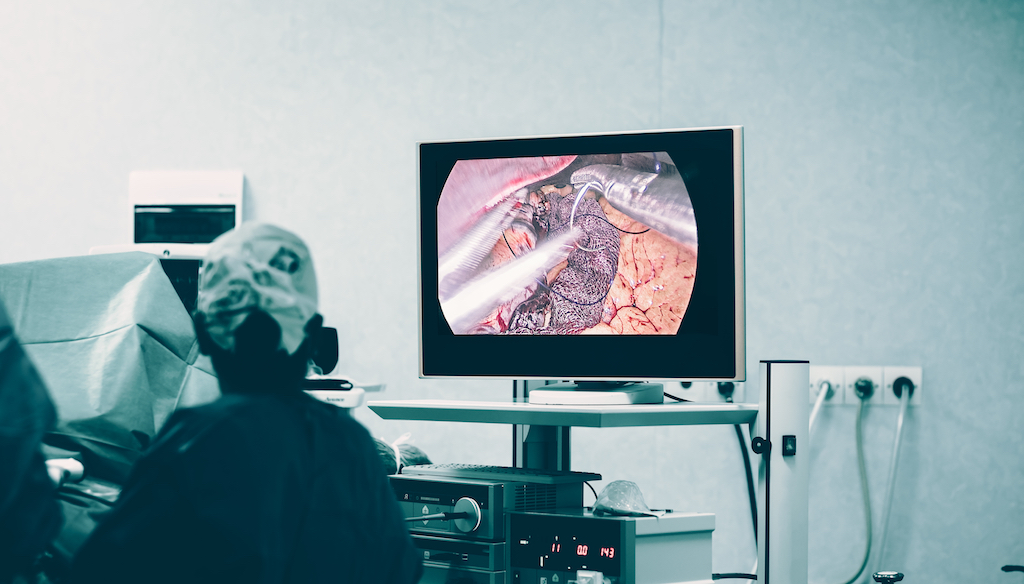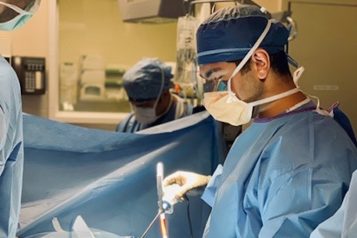Dr. Sepehr Lalezari completed a bariatric and minimally invasive surgery fellowship (specialty training) at Johns Hopkins Medicine in Baltimore, MD, and is now opening an advanced bariatric and minimally invasive general surgery practice in Los Angeles where he grew up. At Johns Hopkins, he learned the most cutting-edge procedures such as single-site surgery, robotic and endoscopic surgery truly incision-less surgery, he called it. Training at JHU was an honor and has put him in a unique position when starting a private practice. Haute MD chats with Dr. Lalezari to learn more about the Laparoscopic Sleeve Gastrectomy procedure.
 Photo Credit: Shutterstock
Photo Credit: Shutterstock
HB: What is a Laparoscopic Sleeve Gastrectomy?
Laparoscopic sleeve gastrectomy removes 9/10ths of the stomach to aid in weight loss. Patients lose an average of 70% of their excess body weight. This helps our patients dramatically reduce their medications and live a happier and healthier life.
HB: How does a Laparoscopic Sleeve Gastrectomy work?
Weight loss not only occurs because of a reduction in the volume of the stomach but it also changes certain hormones. One of the biggest of these changes is to reduce the levels of ghrelin the body produces. Ghrelin is the hunger hormone which cause us to feel hungry when we lose weight. Normally after weight loss the levels increase but after bariatric surgery, the levels of this hormone are greatly reduced so you also don't get the same dramatic sensation of hunger.
HB: Who is the best candidate for this procedure?
Patients who are more than 100lbs overweight, have a body mass index of greater than 40 or have a body mass index greater than 35 with an obesity-related medical condition.
HB: How does this treatment compare to others of the same nature?
Other surgeries reduce the size of the stomach but are associated with certain undesirable problems that do not occur with the laparoscopic or robotic sleeve gastrectomy. It is the best surgical weight loss option available for most patients. In certain cases, a gastric bypass may be better but can only be determined after evaluation by a surgeon.
 Photo Credit: Shutterstock
Photo Credit: Shutterstock
HB: What does recovery look like?
Most patients do not experience much pain after surgery. Typically patients are kept overnight and go home the following morning. Recovery time is about two weeks but for most patients, they are back to doing their normal day to day activities after a couple of days.
For more information, visit Dr. Sepehr Lalezari's social media:





















